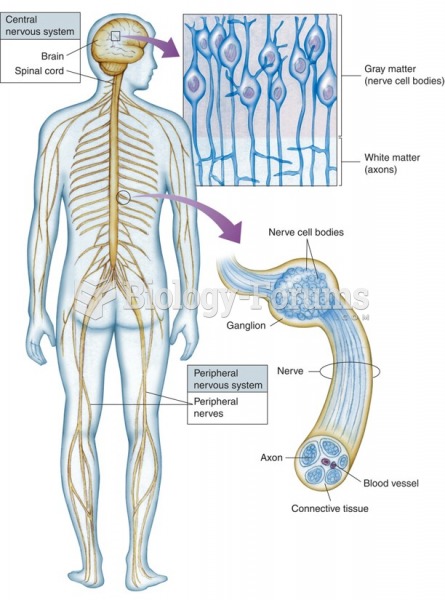|
|
|
The Romans did not use numerals to indicate fractions but instead used words to indicate parts of a whole.
Pubic lice (crabs) are usually spread through sexual contact. You cannot catch them by using a public toilet.
The first oncogene was discovered in 1970 and was termed SRC (pronounced "SARK").
When Gabriel Fahrenheit invented the first mercury thermometer, he called "zero degrees" the lowest temperature he was able to attain with a mixture of ice and salt. For the upper point of his scale, he used 96°, which he measured as normal human body temperature (we know it to be 98.6° today because of more accurate thermometers).
Patients who cannot swallow may receive nutrition via a parenteral route—usually, a catheter is inserted through the chest into a large vein going into the heart.







